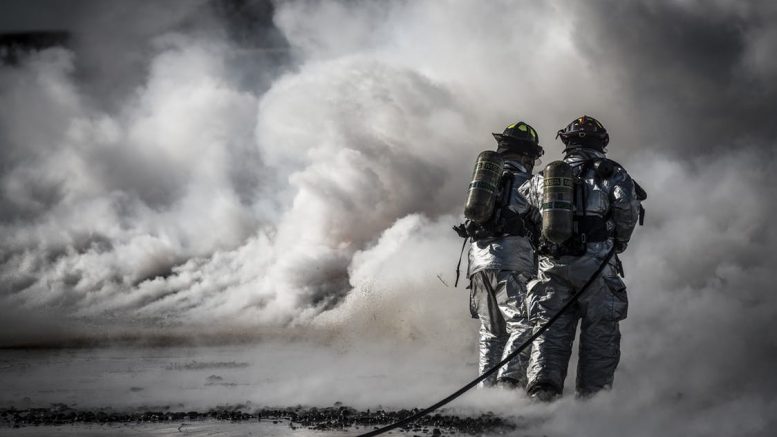While developing a custom carrying case, vest, or any textile product for First Responders or military use, it is important to consider the durability of the fabric. We have previously discussed other durable fabric options on our blog, but Ripstop fabrics are a league of their own: By preventing rips and tears from growing once they have started, this fabric has the ability to keep any damage to the product to a minimum. This makes ripstop fabric ideal for application in the military and medical field.
The most interesting thing about Ripstop fabric is how it is designed to be abrasion and tear resistant. In the same respect as most durable fabrics, it is generally crafted from woven cotton and nylon*, sometimes including enforcing fibers of polypropylene. Contrary to the belief that the material fibers themselves prevent rips and abrasions, it is actually the weaving method that makes the fabric tear-resistant.
Generally using a reinforcing crosshatched weaving technique of nylon fibers across the entirety of the material (leaving spaces that are anywhere from 5mm-8mm), this reinforcement goes against the traditional warp and weft of a woven fabric. This breaks up the fabric into tiny sections. When the fabric is torn, the rip is contained to that 5mm x 5mm sectioned area of fabric, and the nylon reinforcements prevent it from tearing through the whole piece of material. In lightweight ripstop fabrics, this cross-hatching weave is often visible, but modern weaving techniques make it more difficult to recognize a ripstop fabric with sight alone. By utilizing nylon, these fabrics can be designed to be water and fire proof, as well as to have no porosity.
Ripstop fabric is ideal for military applications due to the high level of durability necessary while in the field as well as the fact that, despite its industrial strength, it is still a very lightweight fabric. It has become a design staple of brands like Cordura’s tear resistant fabrics. Protective carrying cases, tactical or medical vests, and equipment duffle bags are ideal candidates for this fabric, as well as protective uniforms of firefighters, military personnel, and First Responders. Ripstop materials could also be used to develop durable medical vests, holsters, or pouches that are heavy-duty enough to protect any electronics connected to a wearable device, or for any medical equipment being transported. An example of another application of ripstop textiles beyond the medical and military fields is rugged camping gear, such as tents and hammocks. We have worked with many companies to develop equipment carrying cases from ripstop materials, as well as used this fabric for our top-of-the-line EMS and mesh bags.
Ripstop fabric is ideal when you are seeking a lightweight fabric without wanting to compromise on durability. Learn more about the Materials we offer here.
*Most of Corduras nylon fabrics are ripstop – we have covered Cordura here.

